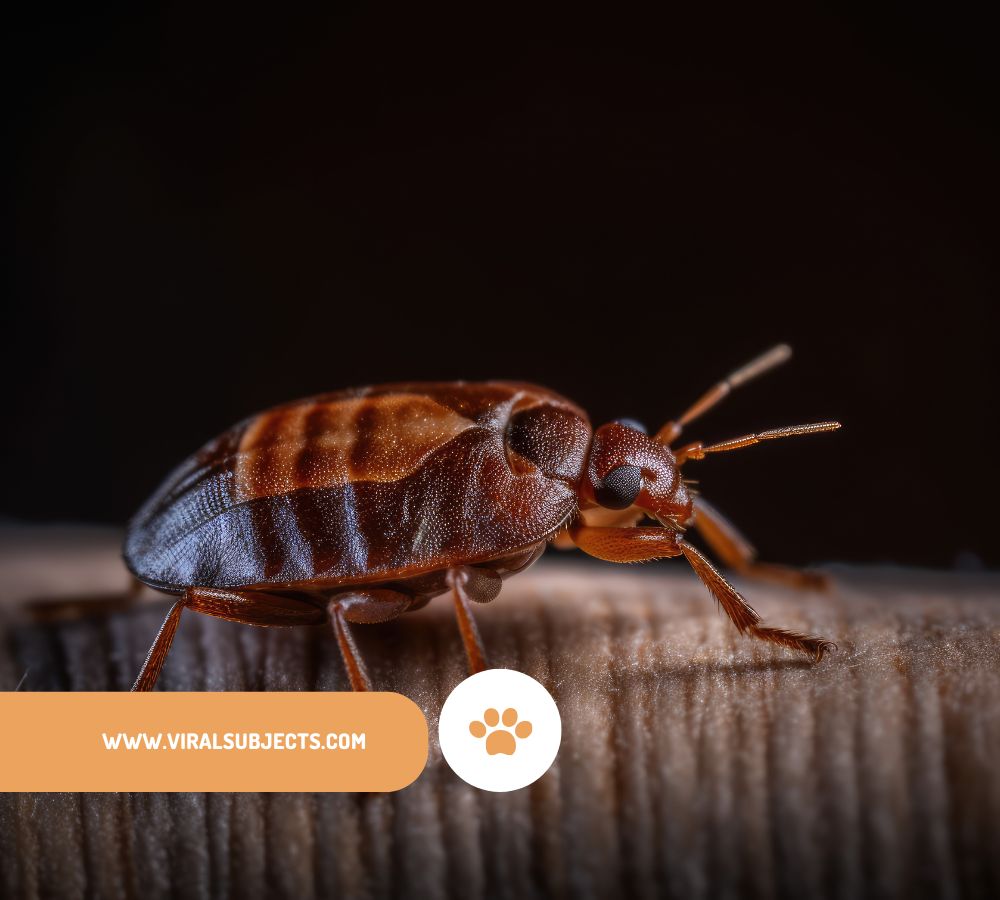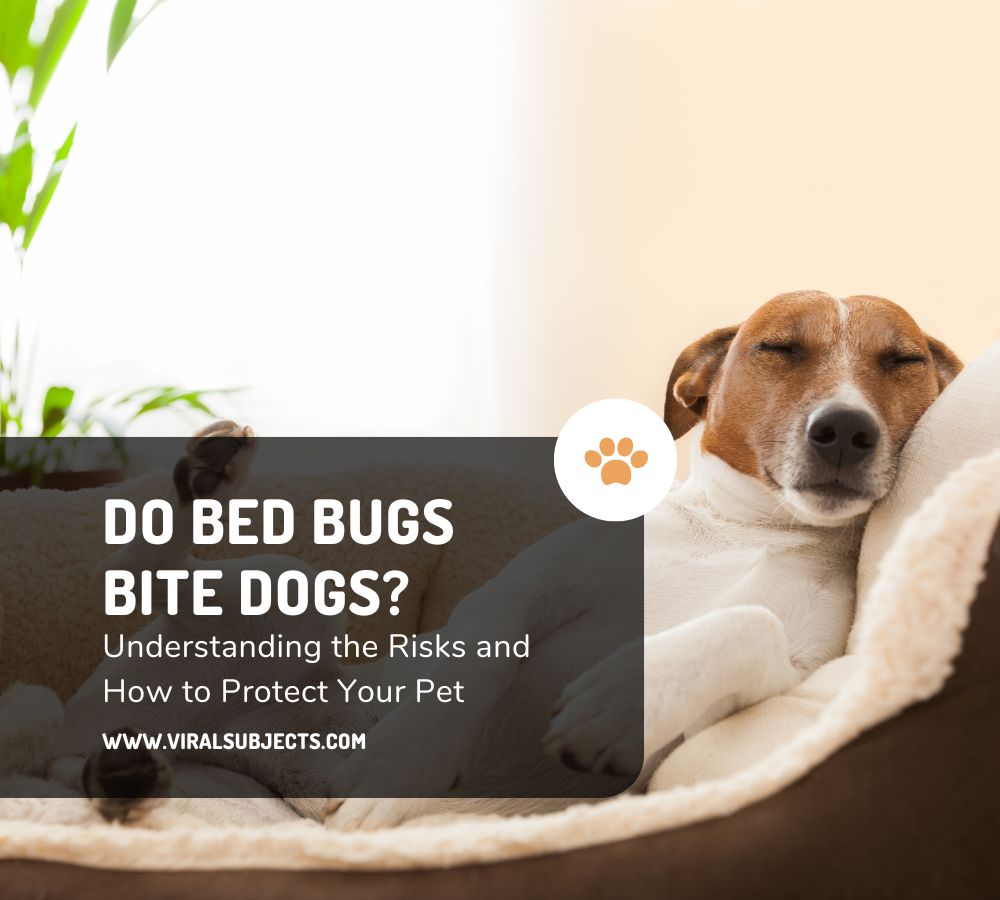Do Bed Bugs Bite Dogs?
Imagine this: you’ve noticed your dog scratching incessantly, more than usual. At first, you think it’s fleas or maybe an allergy, but then you spot tiny bites on their skin. What if the culprit isn’t fleas or ticks but something less expected bed bugs? It’s a scenario many pet owners might overlook, but bed bugs can indeed bite dogs, especially when no human host is available. This article dives into everything you need to know about how bed bugs affect dogs, how to protect your furry friend, and what to do if these pests invade your home. you will fin all answer about this queqtion “Do Bed Bugs Bite Dogs?“
Do Bed Bugs Bite Dogs?
The short answer is yes, bed bugs can bite dogs, although they don’t prefer them. Bed bugs are parasites that primarily feed on human blood, but in desperate situations, they will target other warm-blooded animals, including dogs.
Why Do Bed Bugs Bite Dogs?
Bed bugs are attracted to warmth and carbon dioxide, which both humans and dogs emit. If their preferred human hosts are unavailable, these pests may bite dogs as an alternative food source. Unlike fleas or ticks, bed bugs don’t live on their hosts. Instead, they hide in crevices near sleeping areas and come out at night to feed.
How Bed Bug Bites on Dogs Differ from Flea or Tick Bites
Flea and tick bites often appear in clusters or localized spots. Bed bug bites, however, are usually more linear or in zig-zag patterns. These bites are often mistaken for allergic reactions or other skin issues, delaying proper identification and treatment.
Signs That Bed Bugs Are Biting Your Dog
Your dog can’t tell you they’re uncomfortable, so it’s up to you to recognize the signs.
Physical Symptoms
- Red welts or bumps: These are often found on areas with less fur, such as the belly, inner thighs, or ears.
- Excessive scratching or licking: If your dog is persistently scratching, check their skin for unusual marks.
- Irritated or inflamed skin: Bed bug bites can cause localized redness and swelling.
Behavioral Changes
- Restlessness: Your dog might seem agitated, especially at night.
- Avoidance behavior: They might shy away from certain areas of the house where bed bugs are hiding.

How to Check Your Dog and Home for Bed Bugs
If you suspect bed bugs, a thorough inspection is necessary.
Inspecting Your Dog
Start by examining your dog’s fur and skin:
- Use a fine-toothed comb to part their fur, looking for red welts or tiny bugs.
- Pay close attention to areas with less fur, like the belly, ears, and paws.
- If you find any unusual marks, consult your vet to rule out other causes like fleas or allergies.
Inspecting Your Home
Bed bugs tend to hide in dark, narrow spaces. Here’s where to look:
- Mattress seams, cracks in furniture, and baseboards.
- Your dog’s bedding and nearby areas.
- Any dark spots or specks (which might be bed bug feces).
Quick Tip: Use a flashlight and magnifying glass to inspect these areas thoroughly.
Preventing Bed Bug Bites on Dogs
The best way to protect your dog is to address the infestation at its source—your home.
Maintaining a Clean Environment
- Wash bedding regularly: Both your dog’s and your own bedding should be washed in hot water to kill any bed bugs and their eggs.
- Vacuum thoroughly: Focus on carpets, furniture, and cracks in floors or walls. Dispose of vacuum bags immediately.
Bed Bug-Proofing Your Dog’s Space
- Use mattress encasements for your bed and your dog’s bedding.
- Relocate your dog’s bed if it’s near heavily infested areas.
Natural Repellents for Dogs
If approved by your vet, some natural remedies can deter bed bugs:
- Essential oils like lavender or tea tree (always dilute and ensure they are safe for dogs).
- Diatomaceous earth around sleeping areas to kill bed bugs without chemicals.
Treating Bed Bug Bites on Dogs
Once you’ve identified bed bug bites, soothing your dog’s discomfort should be your priority.
At-Home Remedies
- Cool compress: Apply a cold, damp cloth to the affected area to reduce itching and swelling.
- Oatmeal baths: Oatmeal has natural soothing properties that can calm irritated skin.

Anti-Itch Bath Recipe
| Ingredient | Amount | Notes |
|---|---|---|
| Ground oatmeal | 1 cup | Use unflavored, natural oatmeal. |
| Baking soda | 1/4 cup | Helps soothe skin irritation. |
| Lukewarm water | Enough to fill | Ensure the water is not too hot. |
Mix the ingredients in a tub and allow your dog to soak for 10-15 minutes.
When to See a Vet
If your dog exhibits any of these symptoms, seek veterinary advice:
- Persistent scratching that leads to open sores.
- Signs of infection like pus, excessive swelling, or lethargy.
- Severe allergic reactions, including difficulty breathing.
FAQs About Bed Bugs and Dogs
Do bed bugs bite dogs over humans?
No, bed bugs prefer humans as hosts because of our less hairy skin. However, they will bite dogs if no human host is available.
Can dogs bring bed bugs into the house?
Dogs can unintentionally transport bed bugs on their fur or bedding, but they do not attract them as hosts.
Are bed bug bites dangerous to dogs?
Bed bug bites are not inherently dangerous but can lead to discomfort and secondary infections if scratched excessively.
How can I keep my dog safe from bed bugs?
Regularly clean their bedding, inspect your home for infestations, and consult your vet for safe repellents or treatments.
While bed bugs are primarily a human nuisance, they can also cause discomfort for your furry friend. By recognizing the signs of bites, inspecting your home and dog, and taking preventive measures, you can protect your pet and keep your home bed-bug-free.
